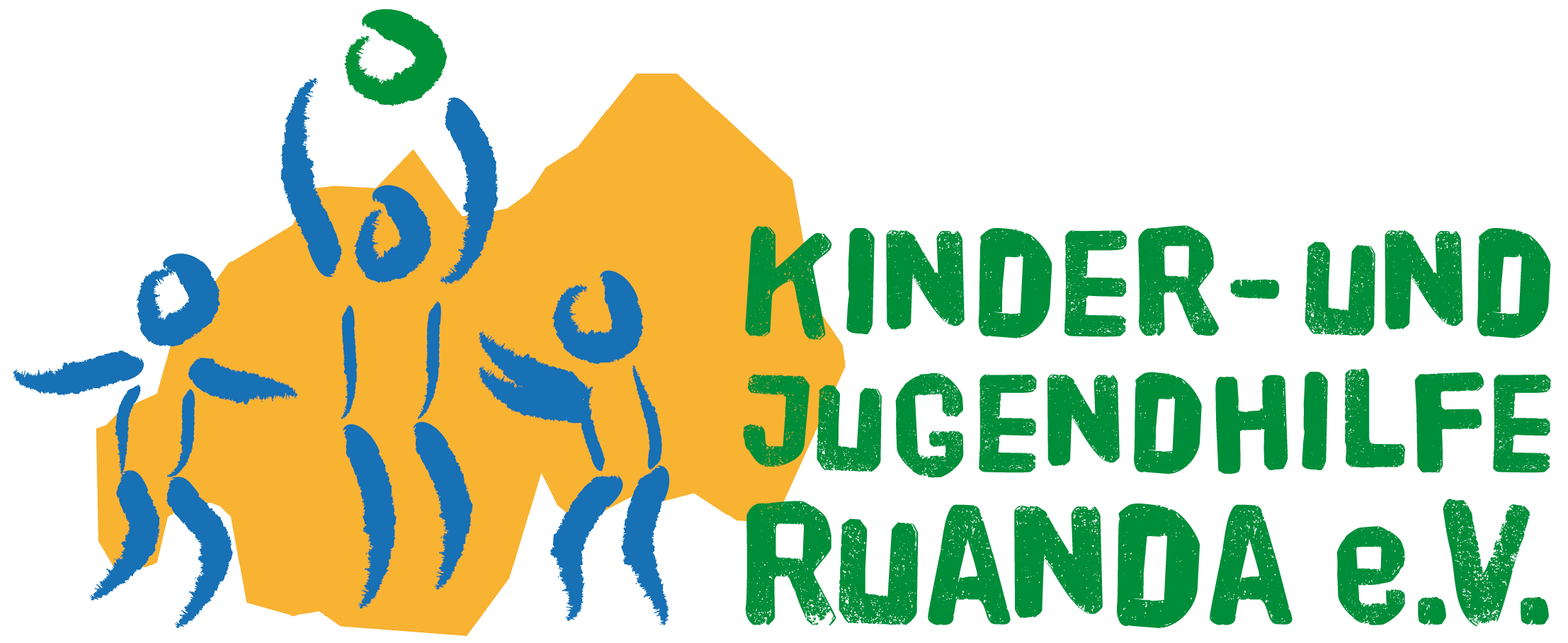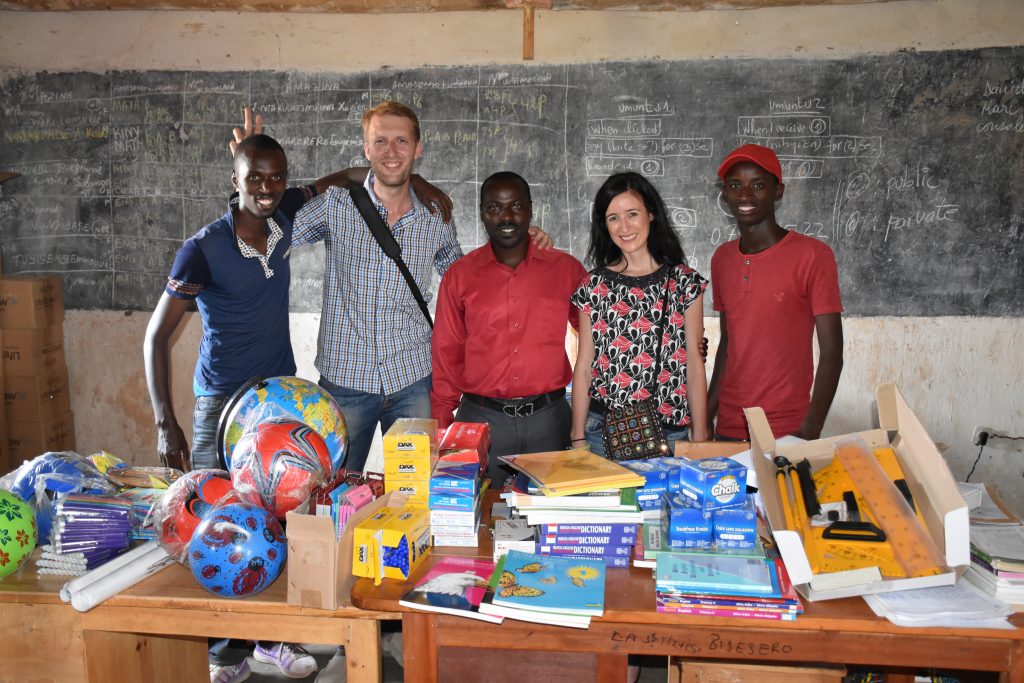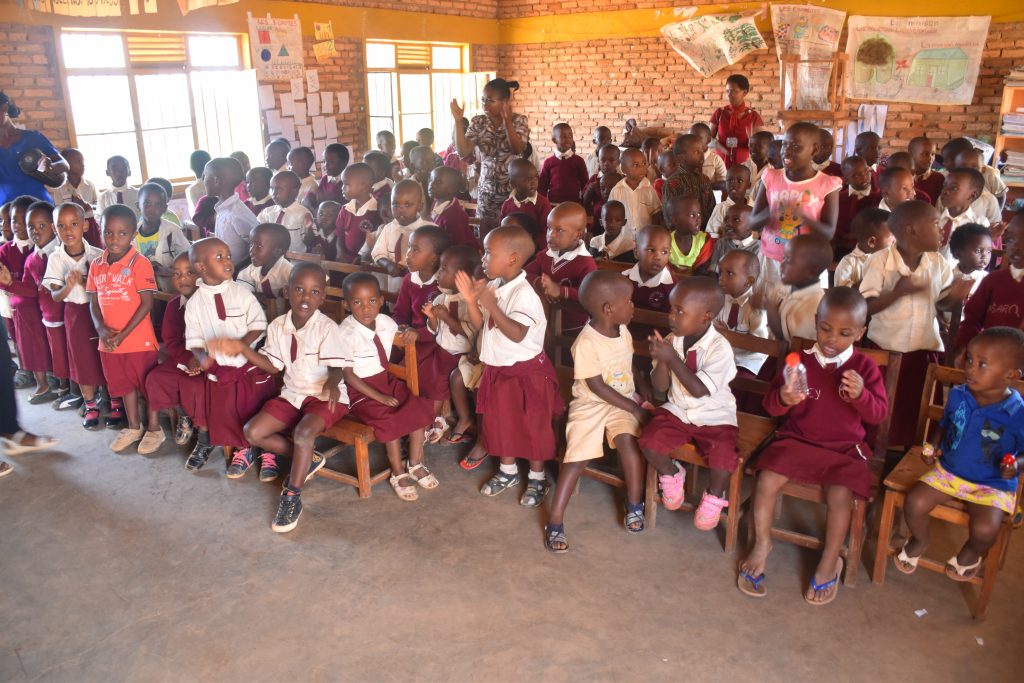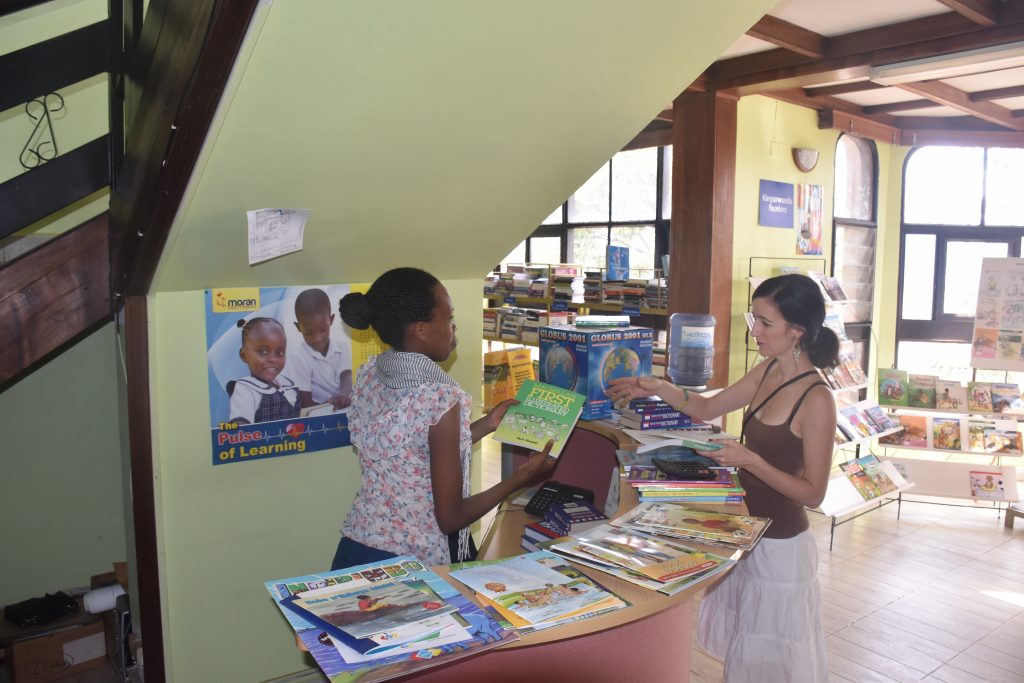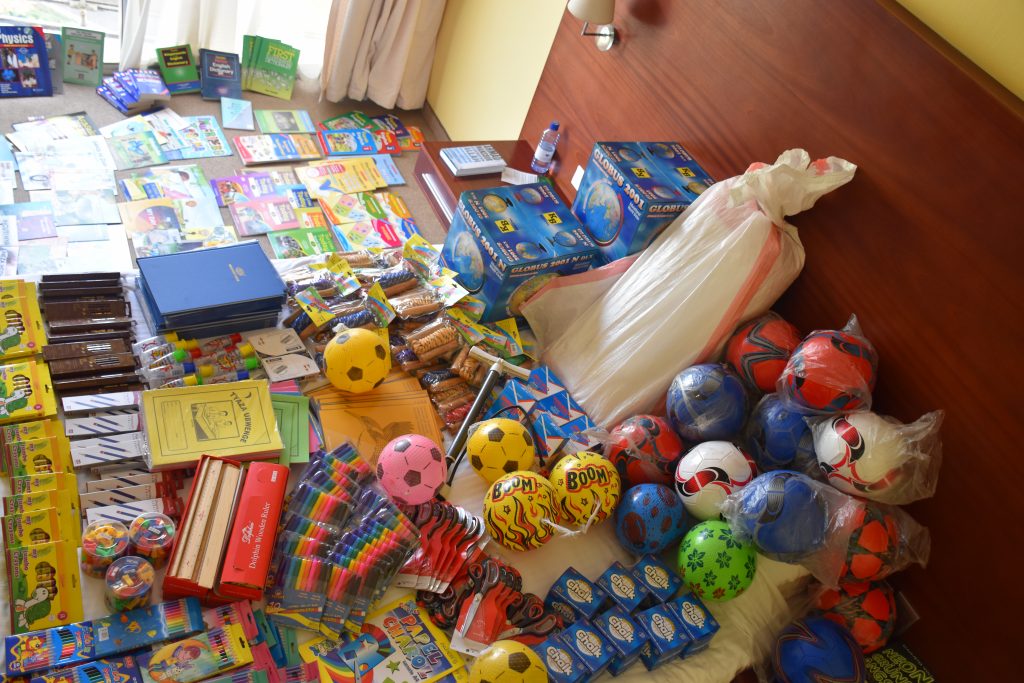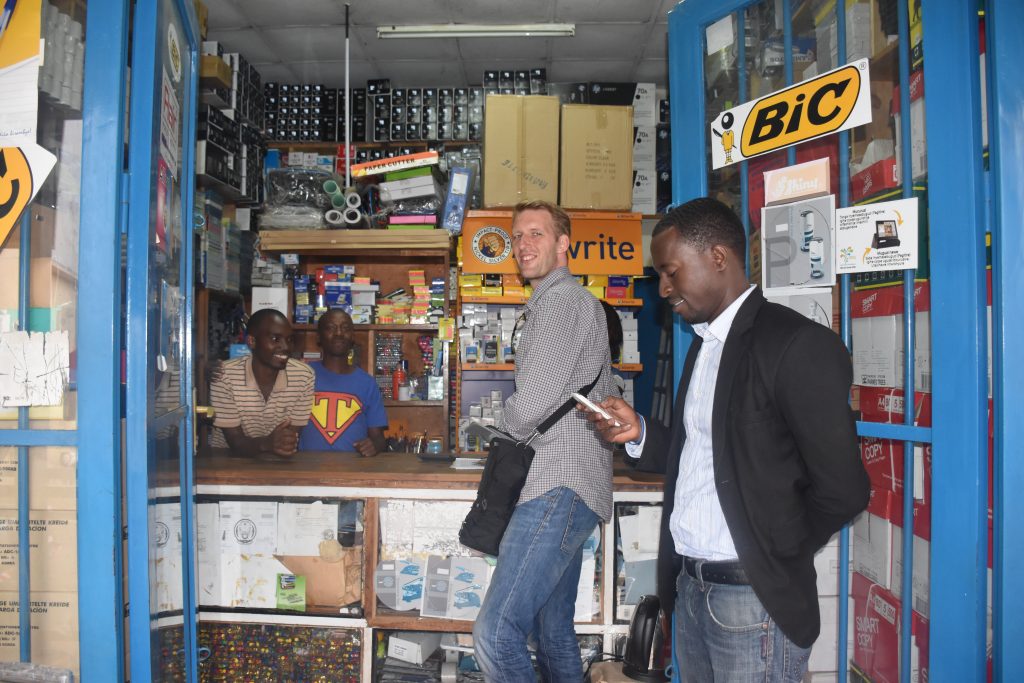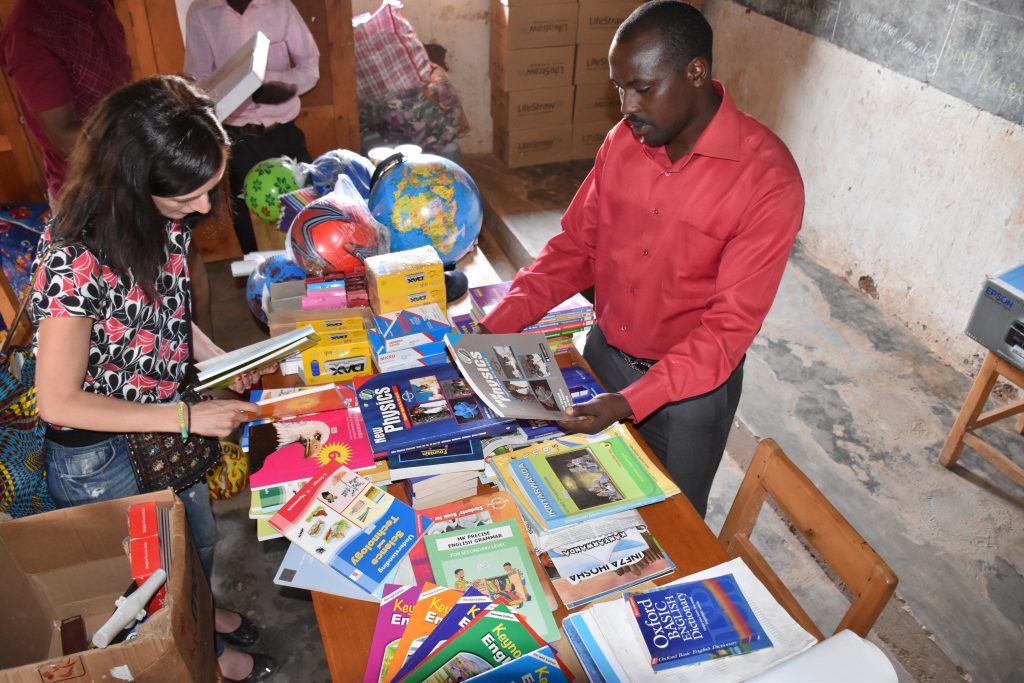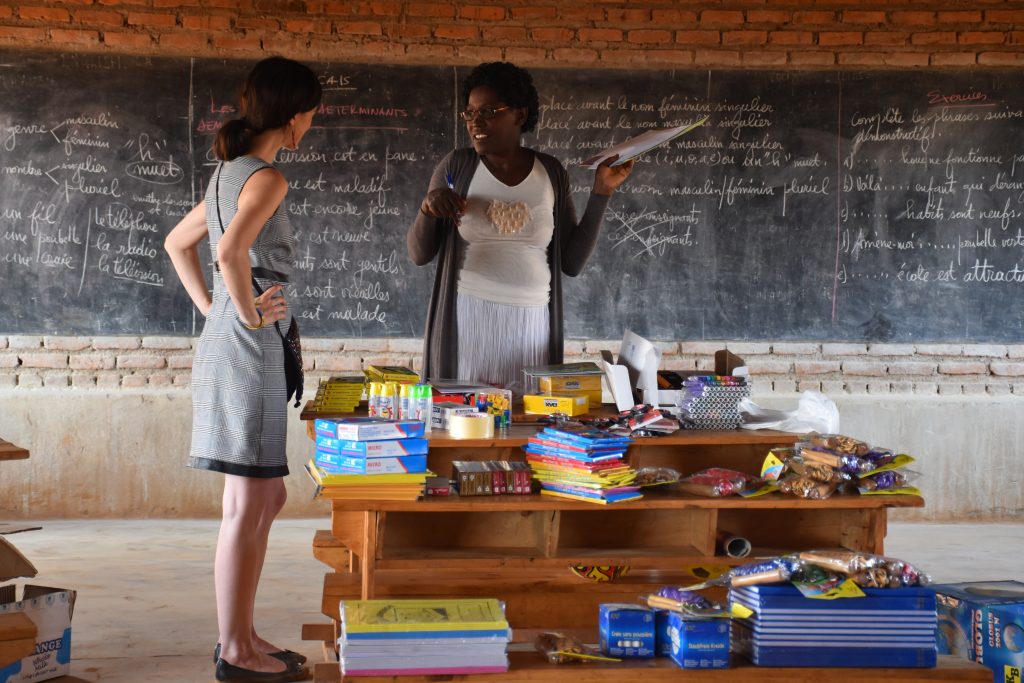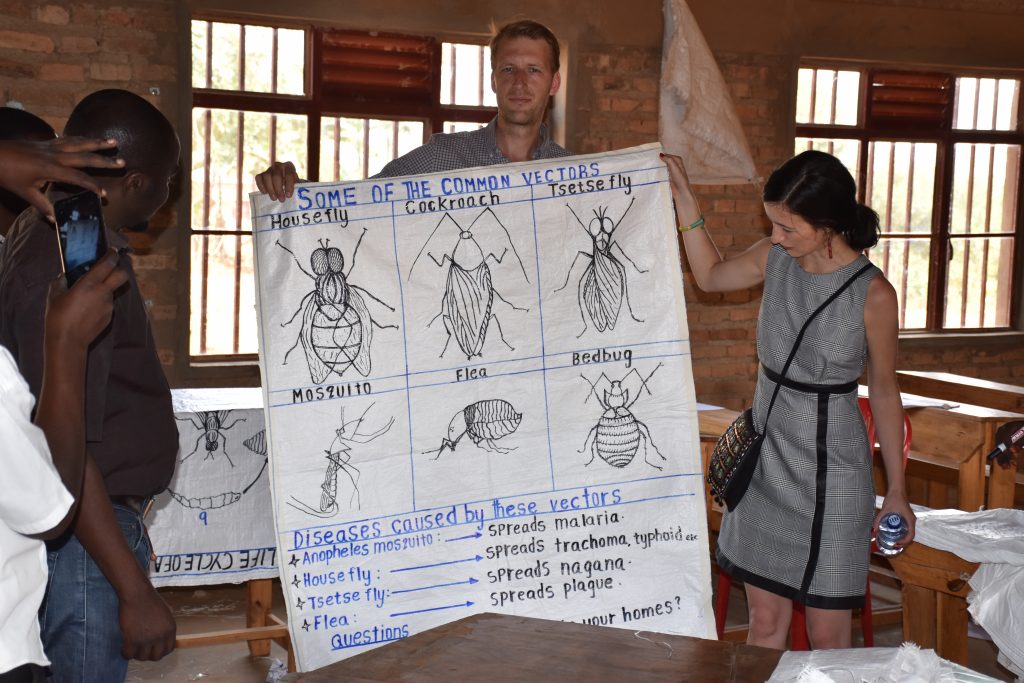Uncategorized
SCHOOL MATERIALS
Both state and private schools in Rwanda lack one thing in particular: school supplies! This includes not only schoolbooks, but also coloured pencils, workbooks, scissors and much more. Most students only have one pen and a small notebook that they take with them to school and in which they copy everything that is written on the blackboard. This significantly limits the space for creative tasks and teaching methods, although many things can be acquired for little money. For example, a schoolbook usually costs no more than € 5, an eraser € 0.10, watercolours € 2, etc.
If you would like to ensure a more colourful, creative everyday school life at a Rwandan school, donate any amount to the project account with the reason for payment “school supplies”.
Our project partner takes care of the purchase, transport and handover of school materials to a school that is particularly poorly equipped. You will then receive the relevant photos and a receipt as proof that the project has been carried out.
In recent years, several schools have already been equipped with numerous school materials.
As an example, you can read the report of a board member who was in Rwanda to hand over numerous school materials in 2016:
When we travelled to Rwanda in the summer of 2016, we visited two primary schools, among others: a state school in Bisesero and the private school “Rise to Shine” in Masaka.
We had got in touch a few months earlier with the headmistress of Rise to Shine, who takes care of children in need and enables them to go to school. She founded the school in 2011 and currently looks after around 220 students (nursery and primary school).
On our first visit, we made our way – packed with 250 lollipops and a soccer ball – over several kilometres of gravel paths …
… and were warmly welcomed by all students with songs and dancing. The school lacked almost everything: pens, exercise books, schoolbooks, toys, etc., so we quickly decided on an aid campaign: we wanted to buy school materials worth € 1,000 with the help of several generous donations.
The school in Bisesero, which we visited shortly afterwards, was not better equipped: in addition to textbooks and other school materials, it also urgently needs more classrooms, as 80-100 students study together in each class. The construction of a classroom, however, remains a dream of the future … (of course, in the long term, the headmaster also wishes to build a computer room, a small school library, a cafeteria, etc.). A classroom in Rwanda costs around € 10,000.
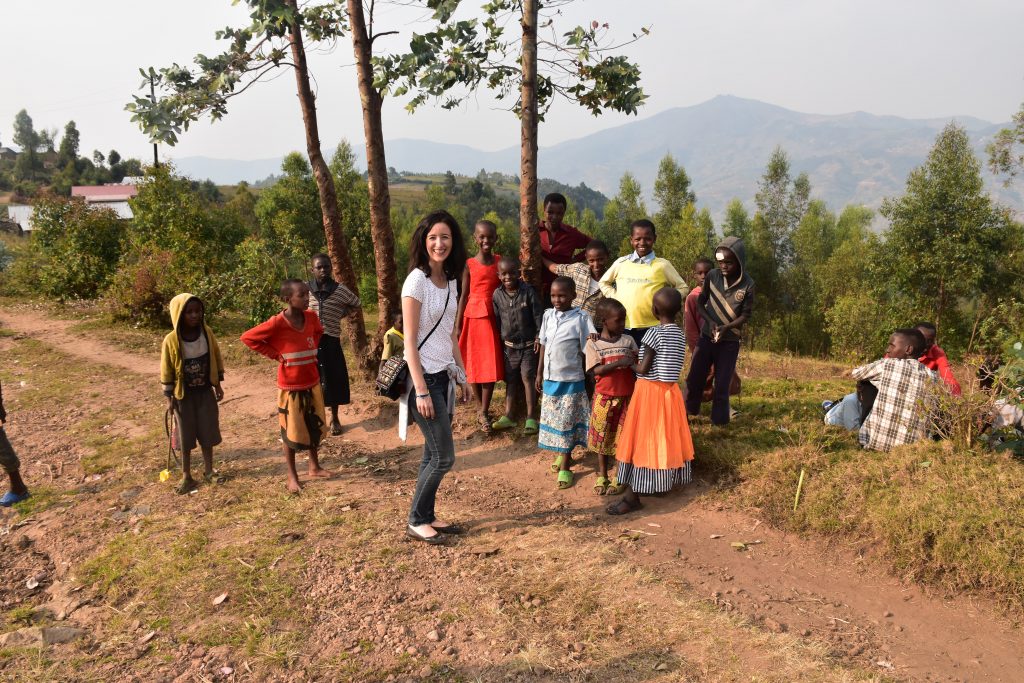
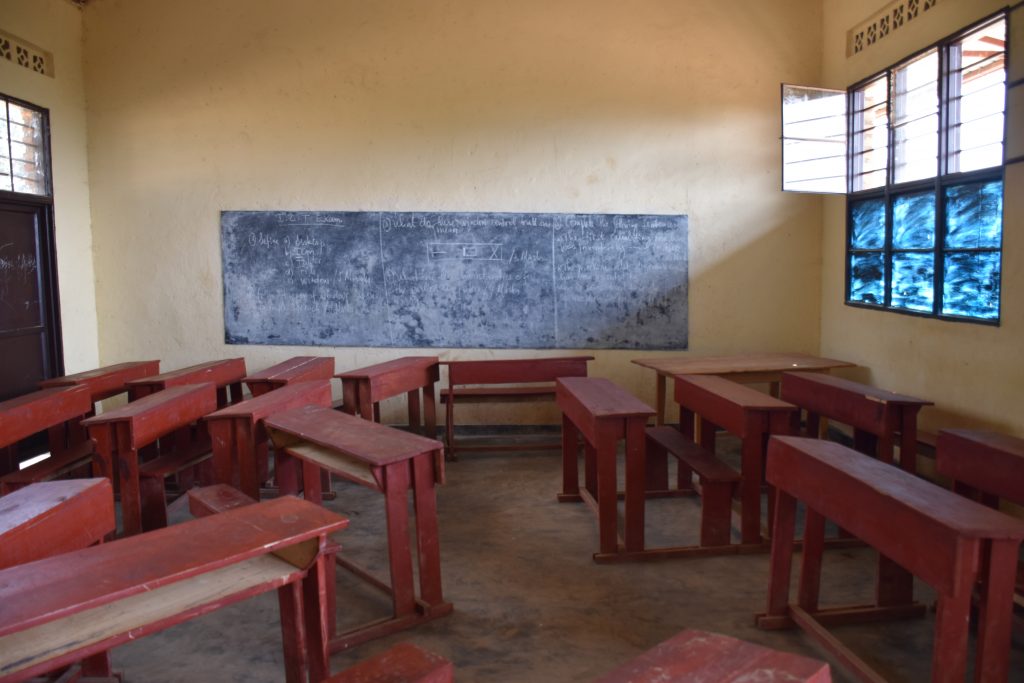
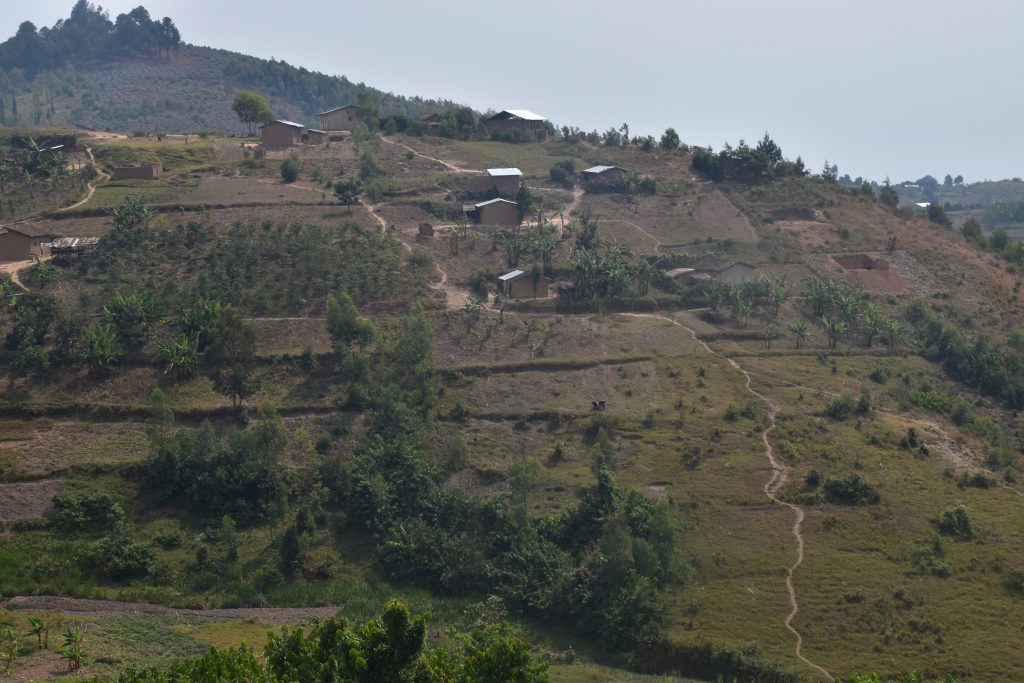
We spent two full days buying all school supplies and textbooks from a schoolbook publisher and at various markets. Our shopping list seemed to be endless: 300 pencils, 160 erasers, 12 class books, 150 rulers, 400 coloured pencils, 20 blocks of coloured paper, 220 felt-tip pens, 220 sharpeners, 50 rice sacks (for making educational posters), 130 markers, 40 skipping ropes, 20 footballs, 500 pens, 4 geometry sets for the blackboard, templates for copying, 35 reading books, 7 books for Kinyarwanda lessons, 6 books for social studies, 6 books for English lessons, first aid kit etc. etc. etc.
When we went to Rise to Shine in Masaka for the second time, our trunk was full of school supplies. The way there was so dusty this time that after several unsuccessful attempts we had to get out of the car on a steep incline to reach the place. When we arrived, we were warmly welcomed by the school management and again shown through all the classrooms in which the teachers were just creating new materials for the lessons, such as posters made from rice sacks. After Monique, the head of the nursery school, had listed all the materials in the school’s inventory list, Ibra, the Dean of Teachers, said a long prayer and thanked all German sponsors. At the end of the day, of course, a group photo was a must!
When we arrived in Bisesero, “our boys” were first confiscated by a group of children to play soccer with a ball they had made themselves. Then we handed over countless school materials and books (reading books and schoolbooks) here too. Since most teachers get an extremely modest salary (between € 50 and € 70 per month), it is hardly possible for them to buy teaching materials such as maps, chalk, etc.
The joy was huge! We hope to continue working closely with schools in the future.
Many thanks to all sponsors who made this wonderful event possible.
